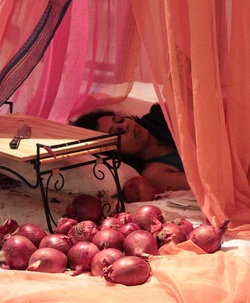
Monica Jahan Bose was born in the U.K. Her parents are from Bangladesh and she has lived all over the world. She is an artist with a law degree from Columbia. She has a BA in painting from Wesleyan and has worked on her art both in Paris and in the United States.
Her family is both Hindu and Muslim and is also geographically divided—some live in West Bengal and others in Bangladesh. Her background clearly influences her thoughtful work—she deals with cultural issues, issues of sexual identity and human perception in general. Her work is not just art but a call to action. Jahan Bose is an activist, first and foremost and women's issues are in the forefront of her art.
She was shown at Scope Miami 2012 by Gallery Cosmos of Bangladesh.
Jahan Bose’s piece, Indelible Scent, is an installation/performance piece (pictured here) that first appeared at Art Asia/Scope in December 2012 and then again in the spring of 2013.
“My piece is about female activism in mind and body.“ says Jahan Bose.
The gist of the piece is the artist in a bed with a canopy of saris above her. She reads and sleeps and does what we do while in the privacy of our bedrooms. She reads Taslima Nasrin ‘s Ka. Nasrin is an author and former physician and Ka is her memoir.
“She wrote in Bengali. It was banned in Bangladesh and it was banned in India. It isn’t all that explicit.” says Jahan Bose.
Nonetheless Nasrin had a fatwa put on her head by extremists.
Jahan Bose also reads poems by Carol Ann Duffy.
“The book had a lot of her poems about love and relationships . She even has a great poem about cell phones and texting.” says Jahan Bose.
You can text the artist during the performance. She says that one way to empower women is through reading and literacy. This piece’s symbolism, however, extends beyond reading and literacy; private and public are blurred and the materials used have their own significance.
“I am in this private space but in public, playing with the idea of what is private. How do we connect with people?” she says.
The use of saris in the canopy is not accidental or purely used for aesthetics.
“The saris symbolize women’s virtues—pink and red are symbolic of fertility and are worn in weddings,” says Jahan Bose. “I am referring to women’s choices in bed—to marry who they want to, to have equal access to education. A lot of places women don’t have a choice of who to marry or how to express themselves.”
“I have these moments of real clarity. A lot of ideas float to my mind,’ she says. “There I am usually reading my mom’s books. I get interesting ideas and I think about my families and their lives.”
The piece is not always identical at each performance.
“Each time it is different. Sometimes I am in bed three hours reading, texting, sometimes falling asleep,” she says. “At the end of the piece I start peeling an onion, throwing the skins into the air.”
Then she cuts them.
One amusing side effect at Scope Miami 2012 was people, on the other side of the pavilion, sniffing the air with peculiar expressions; what is that smell? Some seemed close to panic.
“It was fun for me to bring that smell into the pavilion. I did it smaller in D.C. it was a different experience. In an art fair it is cool because thousands come through,” she says. “In an art gallery people came and sat for the entire time. They were more engaged. At the end half the audience was crying. It was emotional—not just the onions.”
Jahan Bose ups the intensity in the onion cutting part of the performance.
“I have managed to cut myself I am in such a frenzy.” she says.
The onion, as everything else, is chosen for a reason.
“The onion is a symbol of sexuality in South Asia. Brahmins don't eat onions. Hindu widows never remarry or eat onions because they will lead to passion,” she says. “For me, a lot of the work is about imagery. I noticed the purple onions. They look like the human body when you cut them, like skin, like human genitalia.”
“Most people text me to find out what I am reading. I send back excerpts when reading in Bengali I translate. People in the studio were concerned.” says Jahan Bose.
She says that the number she gives out is her actual cell number. For the most part she receives appropriate, interesting responses.
“People have texted me days later about pieces. Some people texted me about a restaurant, which I found annoying while doing a piece,” she says. “I got a lot of texts after Miami from people who wanted to connect after. Texting is more for performance. People who want to comment should go to the website.”
While many might be leery of putting their real contact information out there Jahan Bose has no reservations.
“I wanted to be vulnerable. I wanted to be out there.” she says. “It did sort of make me feel good about people. It was a nice affirmation of humanity.”
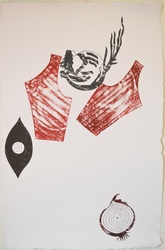
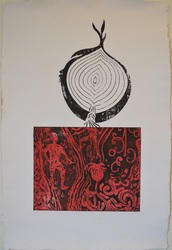
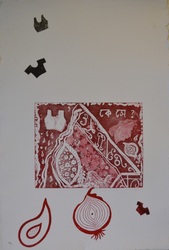
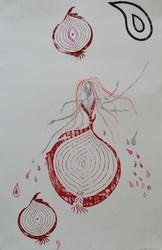
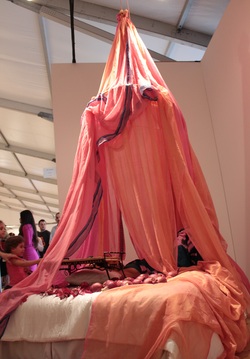
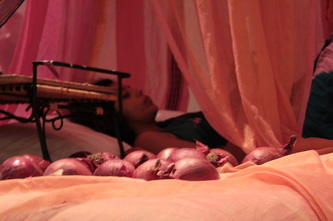
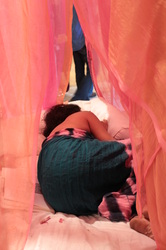
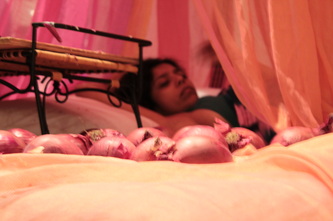
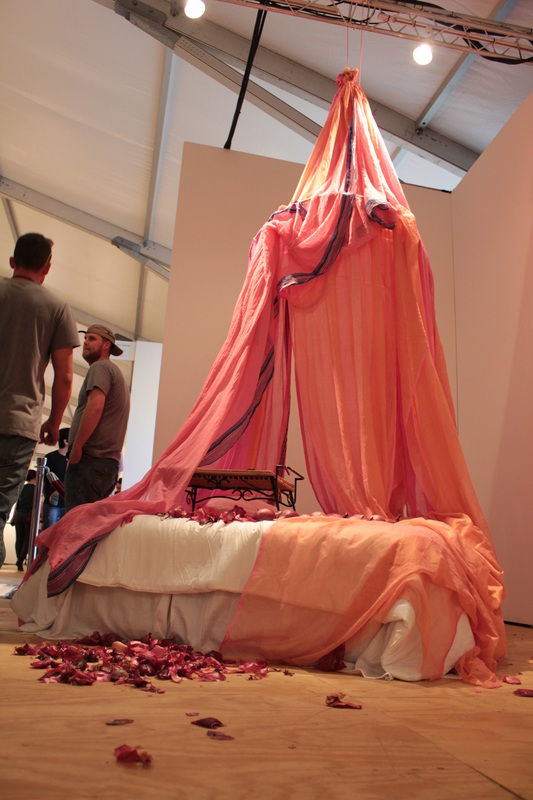
 RSS Feed
RSS Feed